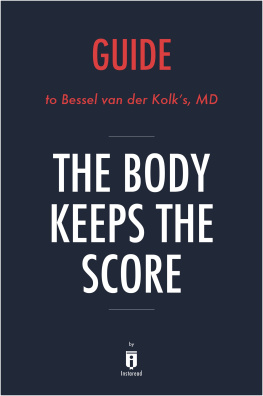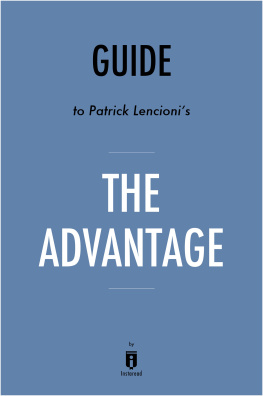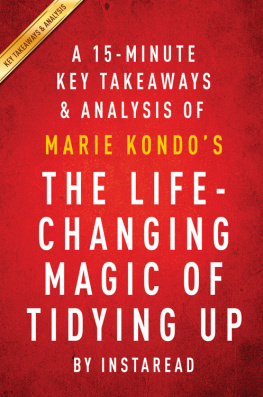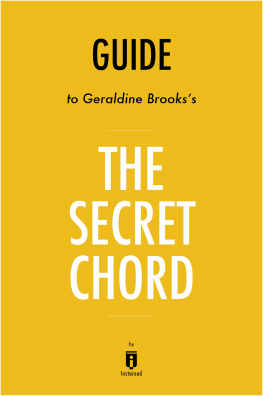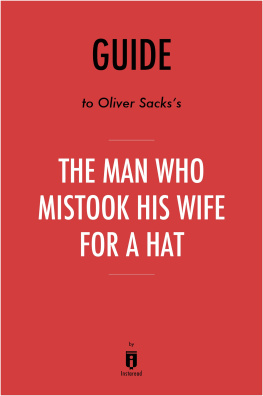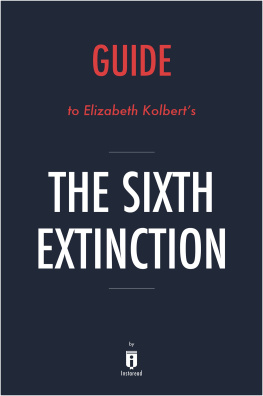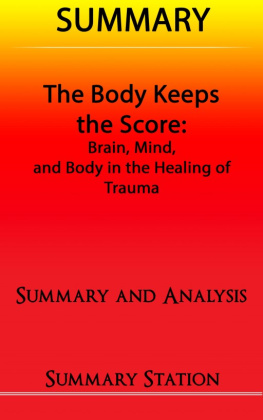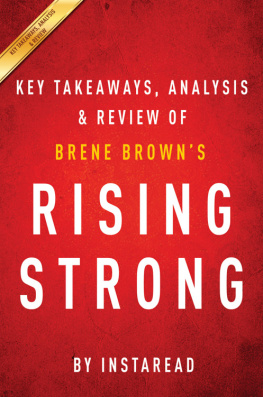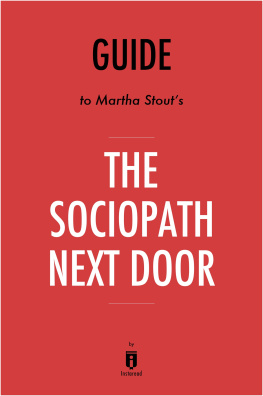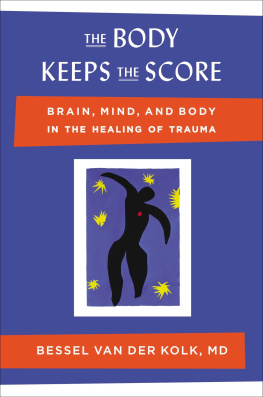Instaread - The Body Keeps the Score: Brain, Mind, and Body in the Healing of Trauma by Bessel van der Kolk, MD
Here you can read online Instaread - The Body Keeps the Score: Brain, Mind, and Body in the Healing of Trauma by Bessel van der Kolk, MD full text of the book (entire story) in english for free. Download pdf and epub, get meaning, cover and reviews about this ebook. year: 2015, publisher: iDreamBooks Inc, genre: Religion. Description of the work, (preface) as well as reviews are available. Best literature library LitArk.com created for fans of good reading and offers a wide selection of genres:
Romance novel
Science fiction
Adventure
Detective
Science
History
Home and family
Prose
Art
Politics
Computer
Non-fiction
Religion
Business
Children
Humor
Choose a favorite category and find really read worthwhile books. Enjoy immersion in the world of imagination, feel the emotions of the characters or learn something new for yourself, make an fascinating discovery.
The Body Keeps the Score: Brain, Mind, and Body in the Healing of Trauma by Bessel van der Kolk, MD: summary, description and annotation
We offer to read an annotation, description, summary or preface (depends on what the author of the book "The Body Keeps the Score: Brain, Mind, and Body in the Healing of Trauma by Bessel van der Kolk, MD" wrote himself). If you haven't found the necessary information about the book — write in the comments, we will try to find it.
Inside this Instaread of The Body Keeps the Score:
- Important People
- Key Takeaways
- Analysis of Key Takeaways
The Body Keeps the Score: Brain, Mind, and Body in the Healing of Trauma by Bessel van der Kolk, MD — read online for free the complete book (whole text) full work
Below is the text of the book, divided by pages. System saving the place of the last page read, allows you to conveniently read the book "The Body Keeps the Score: Brain, Mind, and Body in the Healing of Trauma by Bessel van der Kolk, MD" online for free, without having to search again every time where you left off. Put a bookmark, and you can go to the page where you finished reading at any time.
Font size:
Interval:
Bookmark:
Guide to
Bessel van der Kolks, MD
The Body Keeps the Score
Brain, Mind, and Body in the Healing of Trauma
by
Instaread
Please Note
This is a companion to the original book.
Copyright 2015 by Instaread. All rights reserved worldwide. No part of this publication may be reproduced or transmitted in any form without the prior written consent of the publisher.
Limit of Liability/Disclaimer of Warranty: The publisher and author make no representations or warranties with respect to the accuracy or completeness of these contents and disclaim all warranties such as warranties of fitness for a particular purpose. The author or publisher is not liable for any damages whatsoever. The fact that an individual or organization is referred to in this document as a citation or source of information does not imply that the author or publisher endorses the information that the individual or organization provided. This concise companion is unofficial and is not authorized, approved, licensed, or endorsed by the original books author or publisher.
Table of Contents
In The Body Keeps the Score: Brain, Mind, and Body in the Healing of Trauma, Bessel van der Kolk, MD, explores the ways in which trauma rewires the brain and changes the way people experience the world.
Trauma affects the mind and body immensely and prevents those affected from living in the present. Van der Kolk, who has researched trauma since the 1970s, first became interested in trauma after meeting with Vietnam veterans who had a very hard time living their lives after returning from the war. They would become very angry, numb to their regular life, and unable to leave behind traumatic moments that occurred during war time. Van der Kolk was instrumental in identifying posttraumatic stress disorder (PTSD) and creating strategies to help those afflicted by it.
Van der Kolk also realized that there are millions of people affected by trauma in their everyday lives, especially children. For example, one in five Americans were molested as children, and one in four people living in the United States has an alcoholic parent. Through work with these people, van der Kolk identified another trauma based disorder, Developmental Trauma Disorder (DTD). Van der Kolk wrote this book, in part, to argue for the inclusion of DTD in the Diagnostic and Statistical Manual of Mental Disorders (DSM VI).
Through his years of experience researching trauma, coupled with advances in brain imaging, van der Kolk created a series of treatment options that go beyond the traditional treatments of talk therapy and pharmacological intervention for those who have been affected by trauma. These include yoga, singing, theater, dance, role-playing, neurofeedback, eye movement desensitization, and reprocessing.
Bessel van der Kolk, MD is a Dutch clinician, researcher, teacher, and founder of The Trauma Center Brookline, Massachusetts. He researches the impact of trauma on the entire person, and finds innovative treatments to help traumatized people find relief.
Tom was one of van der Kolks earliest patients. He served in Vietnam and suffered PTSD. Van der Kolk initially tried to treat his nightmares, but realized his condition was much more complex.
Elvin Semrad was van der Kolks mentor at the Massachusetts Mental Health Center. Semrad taught him to see patients as individuals and not to let pseudocertainties from psychological textbooks obscure what they were really seeing in their patients.
Alexander McFarlane AO, MB BS (Hons) MD, FRANZCP, is the director of the Centre for Traumatic Stress Studies at the University of Adelaide. He is a frequent collaborator with van der Kolk.
- The identification of PTSD created a framework to begin to deal with trauma.
- Trauma creates a different kind of memory than ordinary events. Unlike remembering an ordinary event, when someone experiences the memory of a traumatic event, they are virtually reliving the experience.
- After a traumatic incident the flight/flight impulse is thwarted, creating a cycle of anxiety, increased stress, and dissociation from everyday life.
- Trauma affects the brain by hijacking the basic housekeeping system and the emotional brain, and decreasing the activity of the rational brain.
- Trauma has extreme physiological effects on the body.
- The attachment style a child experiences in early life can predict and create trauma.
- Drugs and talk therapy, two of the most popular approaches to mental healthcare, are very useful in the treatment of trauma, but have limitations because they do not truly bring the person out of the trauma and into reality.
- Trauma treatment needs to be holistic and access the brain, mind, and the physical body.
- Lack of understanding of developmental trauma disorder (DTD) can cause afflicted children to miss out on the best treatments.
The identification of PTSD created a framework to begin to deal with trauma.
Analysis
When van der Kolk began his work with Vietnam veterans in the 1970s, many were being treated for symptoms of their condition, such as nightmares, alcoholism, and psychosis. But the identification of posttraumatic stress disorder (PTSD) allowed for new understanding of patients.
Better knowledge and understanding of PTSD has created many more resources for veterans to deal with trauma. For example, the Veterans Administration once refused to acknowledge the condition, but now there are services such as the Patriot Support Program that provides military-specific health services for PTSD, addiction, and behavioral issues [1]. It provides support staff, treatment centers, and doctors for active members of the military. Research on veterans can also greatly increase understanding of PTSD [2]. The Department of Veterans Affairs has issued a call for brain donations to fill a brain bank, a repository where brains are studied for a variety of neurological conditions in order to see what happens to the brain when people go to war. Researchers say they are asking for the brains in order to gain more knowledge than they could get from brain scans on their own. None of this would be possible without the identification of PTSD.
Trauma creates a different kind of memory than ordinary events. Unlike remembering an ordinary event, when someone experiences the memory of a traumatic event, they are virtually reliving the experience.
Analysis
Ordinary memories have beginnings, middles, and ends. They are seamlessly integrated into a persons story of their life and the person usually moves on. A traumatic memory is a sensory and visual experience. It fires up the visual cortex of the brain and creates physiological changes. The traumatized person experiences the memory as if the trauma is happening at the current moment. It is not integrated and the person does not move on.
Although there are many different theories that explain the relationship with memory and trauma, a lot of research has shown that traumatic memories are processed and remembered in a fundamentally different way from other memories. A study of 306 patients by Stephen Porter and Angela R. Birt, found that traumatic memories differed from memories of other important life events both in vantage point and the number of details [3]. It is this extremely detailed, almost cinematic memory that occurs from a trauma that makes it hard to forget. After a trigger, the person is pushed back into the trauma, experiencing the memory again as if they are seeing it in the present. The vividness of traumatic memories hijacks the brain, and prevents the person from living in the present, making them numb and dissociated from daily life.
Font size:
Interval:
Bookmark:
Similar books «The Body Keeps the Score: Brain, Mind, and Body in the Healing of Trauma by Bessel van der Kolk, MD»
Look at similar books to The Body Keeps the Score: Brain, Mind, and Body in the Healing of Trauma by Bessel van der Kolk, MD. We have selected literature similar in name and meaning in the hope of providing readers with more options to find new, interesting, not yet read works.
Discussion, reviews of the book The Body Keeps the Score: Brain, Mind, and Body in the Healing of Trauma by Bessel van der Kolk, MD and just readers' own opinions. Leave your comments, write what you think about the work, its meaning or the main characters. Specify what exactly you liked and what you didn't like, and why you think so.

